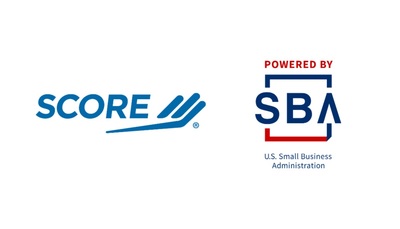
How Much Does it Cost to Start a Small Business?
The best time to determine startup expenditures is when researching a business plan.
WASHINGTON, Dec. 10, 2024 /PRNewswire/ — For aspiring entrepreneurs, the new year may seem like a great time to start a new business, but before rushing into a new venture, it’s important to plan ahead to avoid common mistakes – such as lack of cash flow and planning – two of the primary reasons businesses fail. As mentors to America’s small businesses, SCORE encourages entrepreneurs to avoid these pitfalls by taking the time to research setup costs, create a business plan and estimate your operating expenses.
Here’s a quick overview of your potential startup expenditures.
Location
Rent, permits and other expenses can vary greatly depending on the required space size and location. Generally, home-based businesses have lower initial and ongoing expenses compared to traditional brick-and-mortar establishments. When calculating startup costs, remember to factor in utilities alongside rent. While rent remains constant, utility bills fluctuate throughout the year.
Business licenses and permits
The expenses associated with obtaining business licenses and permits fluctuates based on both your geographic location and the specific industry you operate within. Various types of permits are required, such as seller’s, zoning and health permits for businesses dealing with food products.
Accounting fees
While hiring an accountant may entail an upfront cost amounting to thousands of dollars, it has the potential to yield significant savings in the long run. An accountant plays an important role in establishing an effective accounting system, monitoring your financial inflows and outflows, managing payroll and preparing tax documentation.
Legal fees
Before you open, you’ll need to choose a business structure. The most common are sole proprietorships, partnerships, corporations and limited liability companies (LLCs). The costs and regulations vary by state.
Marketing and advertising
Ensuring your website is fully functional at launch is crucial. The cost of development can range from a few hundred dollars to several thousand, depending on the complexity and required features of the site. It’s also essential to allocate funds to cover expenses for a web host.
Conduct research to determine which advertising outlets are most effective for reaching your target market, whether it’s online, print, radio, TV, email, text or various social media platforms.
Business supplies, furniture and equipment
Consider whether you’ll require office furniture or store fixtures and determine the quantity needed. Assess your technological needs, including the number of computers, printers, tablets, phones, copiers, scanners, cash registers, routers, etc., required for operations.
Some businesses may necessitate specialized equipment. Evaluate whether leasing or purchasing is the better option, but carefully review the lease terms before committing.
Inventory
If you are selling products, you’ll need to purchase inventory. You have the option to procure inventory either through wholesalers or directly from manufacturers. Regardless of your startup status, it’s prudent to establish a diversified supply chain to mitigate risks and ensure consistent access to the necessary goods.
Technology
Beyond basic technological requirements, consider whether specialized information systems or point of sale (POS) software are necessary for your operations. Additionally, assess your needs for tools related to social media management, search engine optimization (SEO) and graphic design, depending on your marketing strategy and online presence goals.
Labor
If you anticipate needing employees upon launch, it’s crucial to factor in the costs associated with wages, benefits and payroll taxes. This includes not only the salaries or hourly wages you’ll be paying your employees but also any additional benefits such as health insurance, retirement plans, paid time off and other perks, as well as the corresponding payroll taxes required by law.
Insurance
Insurance plays a critical role in safeguarding your business. At a minimum, startups should secure basic insurance coverage, although costs can vary significantly based on factors such as location, industry, coverage needs and business size.
If you need assistance, a SCORE mentor can help you. “Check the financial statements of any publicly listed business in your industry,” recommends SCORE mentor John Trenary. “Although you won’t have all the average startup costs they do, this will help you see what they are spending their money on.”
Looking for more information on how to fund your startup costs? On Dec. 17 at 1 pm ET, SCORE will host a free webinar, Loans, Grants and Other Funding Options for Small Businesses. Register here to attend.
To learn more about SCORE, request a mentor or volunteer to be one, visit SCORE.org.
About SCORE
Since 1964, SCORE has helped more than 17 million entrepreneurs start, grow or successfully exit a business. SCORE’s 10,000 volunteers provide free, expert mentoring, resources and education in all 50 U.S. states and territories.
Funded [in part] through a Cooperative Agreement with the U.S. Small Business Administration.
CONTACT:
SCORE
202-968-6428
media@score.org
Visit SCORE’s media resources to connect with expert small business interview sources and news updates.
![]() View original content to download multimedia:https://www.prnewswire.com/news-releases/how-much-does-it-cost-to-start-a-small-business-302326745.html
View original content to download multimedia:https://www.prnewswire.com/news-releases/how-much-does-it-cost-to-start-a-small-business-302326745.html
SOURCE SCORE

